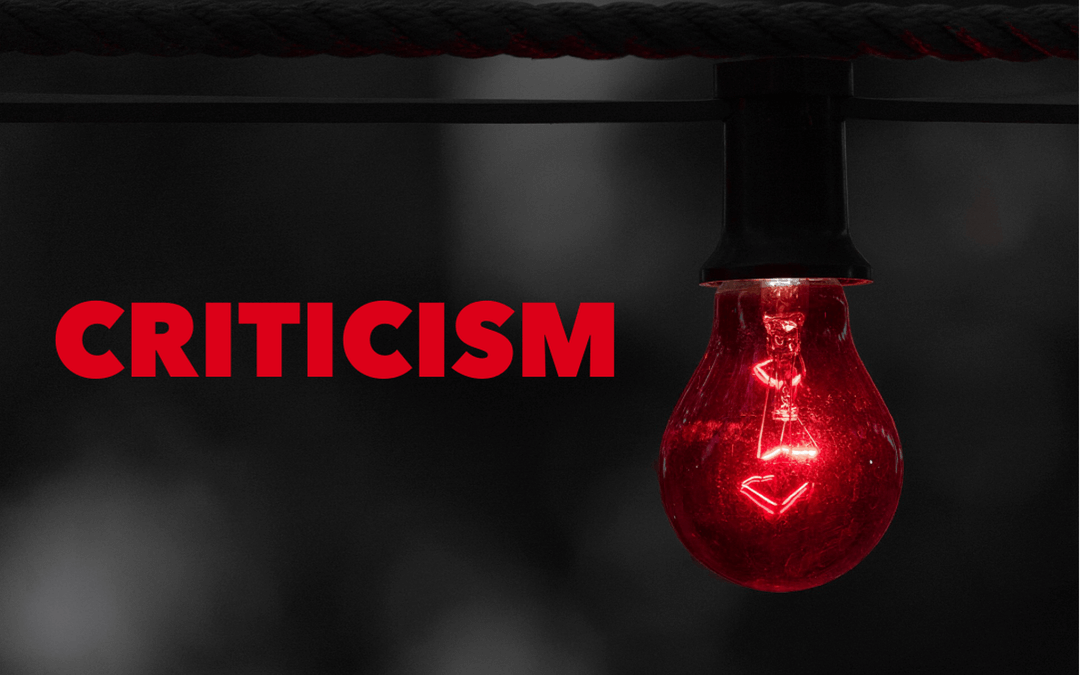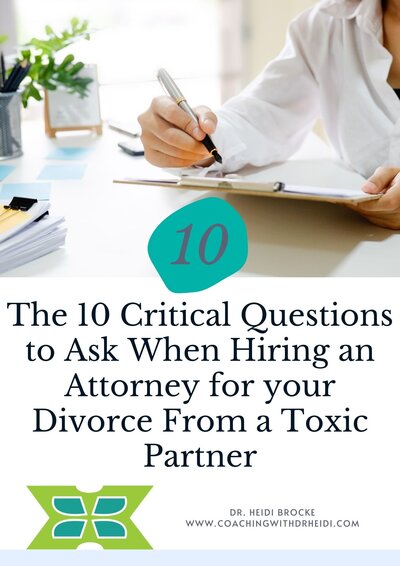Hey, good afternoon! This is Dr. Heidi.
This is a blog for any and all people who have been affected by people that are unhealthy for them.
As I mentioned last week, I am refocusing just a little bit for a few weeks to incorporate the characteristics of the toxic person for educational awareness, so that anybody who is dealing with people in the workplace, in the family life, in the home, with friendships, or in school can start to learn the character traits of a toxic person and why toxic people behave the way they do.
The first thing I would like you to know is that not all toxic people are necessarily toxic to all people. The way I like to teach is this is your life, you get to decide who’s in it and who is not. So by going through the traits, it helps my followers understand the fact that just because someone may be toxic or unhealthy for you does not mean they are a bad person. But because you are responsible for your own life, it is your responsibility to learn how to deal with these people on a level that doesn’t affect you mentally, emotionally, or physically.
As I was planning the podcast and the blog, I really felt that awareness is my number one goal. I want you to understand where it is that you are, sitting in this situation. That being said, I did get some fantastic questions that came through the Coaching With Dr. Heidi Facebook page this week and some of them were questions about how to handle a toxic parent. I had one on how to handle a toxic work environment. And I had one on how to handle a toxic friend. So, all of these can be applied to the very basic characteristics of the toxic person.
The characteristic that I want to start with is the beginning of every coaching program that I do with my clients. The first trait I like to address is Criticism.


The toxic person, in general, is very critical. When I say critical, it’s not in a constructive, try to help you kind of way. In the beginning of the relationship or friendship or work environment, it may be that you will miss the criticism because it appears that they are trying to help you. As it goes on, however, if it is a critical type of environment where it is very nit-picky and things that shouldn’t be criticized or things that don’t even make a difference are being criticized, that’s when you should really take a look at what’s going on and evaluate where the criticism is coming from.
Again, the reason I talk about criticism first is because it is something that after the relationship is over, after we’ve moved out of a toxic home, after we’ve left a toxic environment…criticisms come with us. We stick them in our little fanny pack of what’s wrong with us and we move on through our life with all of these little criticisms that people have told us about.
It’s hard for us to place our finger on the low self-esteem and low self-worth that comes with criticism, but if you start thinking back about things in your life and things that were criticized that now, today, you still think about, why are you carrying that around when another person said it? Why, years later, is it still affecting you?
There’s one example that I love to use, and I feel bad using it but it’s just an example that will show you how a negative connotation to something can affect you years later.
God bless my mother…beautiful woman! When this happened, she was not being critical at all. But I remember being very little, maybe six or seven, going to get my haircut, and I remember her saying to the woman that was cutting my hair, “Can you just give her some type of cut that will cover her big forehead?” Okay, again, my mom was not being critical. But to this day, every picture that I take I say, “Oh, we have to retake that because I have big forehead!”
And you know what? My staff called me on that about four weeks ago when we were making a poster for the “It’s Not Normal. It’s Toxic” Conference that we hosted here in St. Louis. I kept saying, “No, we can’t use that picture, my forehead looks huge.” And one of my friends/staff members said, “You say that every time, and I have not once thought that you have a big forehead!”
Okay, I am now forty years older than the day my mom said, “Can you give her a haircut that will cover her big forehead?” and I continually am focused on how big I think my forehead is. It was just like a light bulb went on. I was like, “Oh, yup, that’s something that I have been carrying around for forty years because somebody else said something.” Again, I apologize to my mother, that beautiful woman. She had no intention of being critical that day; it is just something that went in and stayed in my mind for decades.
Just the example of me having a big forehead made me realize just how much head trash somebody could carry around if they are actually listening to negative things around them. You know when I look back at the stuff that I’m insecure about and the stuff that gives me a panic attack…after I had this forehead realization, I started thinking about the other things that I’m insecure about, and you know what? About 80% of them were from somebody in my life telling me that something was wrong or should be improved upon.
That being the case, that’s why criticism is foremost when I teach about the toxic traits. Your relationship with a toxic person can be long done, but the criticisms will go with you.
Now, why do toxic people use criticism?
Again, a toxic person in general is wanting control and wanting attention. Those are the two main things. Again, it’s more complicated than that, but as we go through these characteristics remember that every single one of them is for the toxic person to either gain control or gain attention and admiration. By using that simplified way of looking at it, you will be able to disconnect emotionally by listening and going through these toxic traits and why they do them.
Criticism in a toxic relationship has two different angles: A toxic person—a true toxic person; a narcissist, a sociopath, whatever the diagnosis is (and again, I don’t get hung up on the diagnosis because we are talking about you and your healing, not theirs)—operates better when other people are struggling because that puts them in a power or control situation and makes them feel better about themselves. When a toxic person can criticize someone else and bring them down, it makes them feel better about themselves. The constant criticism is a control/power move on the toxic person’s part.
Now, things like, “Why don’t you wear those jeans? Look at how good they make her look!” or “You should get your hair cut like that.” or “You should clean the house like my mother.” or “My grandma used to make the best Easter ham ever.” You might not even notice that some of those are criticisms, but if you start keeping track and the criticisms go along with some of the other character traits, you need to realize why you are being criticized so harshly.
If you are one that is being constantly criticized or feel like you are being constantly criticized, I really want you to stop and start paying attention to the reason for the criticism. What happens in a critical situation is somebody tells you something that they think need to be fixed and you spend the next three days at a hundred miles an hour, trying to make improvements on whatever the criticism was. You’re criticized on Monday and by Thursday you think you got it. You’re like, “Okay! I fixed it. It’s done.” You bought the jeans or you cut your hair or you cooked the ham or whatever it was. And I guarantee you that by Thursday they have changed the standards, moved the goal post, and whatever it is that you just achieved to get out from under that criticism, the rules are different now.
You just spent three days trying to fix what they thought was wrong, but they’re already on to the next thing that they think is wrong anyway.
In a critical situation, you need to stop and think. “Are they really being critical?” “Is this something I can fix?” “Is this something that is constructive or something that a toxic person would use to feel power over me, make me run in circles for hours, cry, get upset, and not feel confident?” Then you can make the decision from there whether it’s something you want to change or not.
A toxic person’s goal in criticizing is to get a reaction out of you. They want to know that they can absolutely control your emotional state. So, if they can’t make you happy, they are going to make you sad because, either way, they are controlling your emotions. And you guys know what I’m talking about if you are in a toxic situation because you know when a toxic person enters a room the whole dynamic of the room changes. The whole family can be happy but as soon as the toxic person walks in, the entire demeanor in the room changes. The reason that is is because we become so accustomed to jumping to their every need and wanting to keep them happy, to please them or keep from disappointing them.
When you are being criticized, you need to absolutely understand that it is an inflammatory reaction because they are wanting a reaction from you. The minute you give a toxic person a reaction, you have just given them what they wanted. If they are trying to make you mad and you get mad, that’s exactly what they wanted. If they say something to mean to make you cry and you cry, that’s exactly what they wanted.
You have to be strong to deal with toxic people! There is no doubt about it. You have to talk to yourself over and over to stay one step ahead of them. And criticism, without a doubt, is one of the first things you need to talk yourself out of. A lot of times they will criticize what they know you are good at, or they will criticize what they absolutely know is the opposite of your true character, which then sends you reeling because you were 100% sure that you were good at that but they’re telling you that you’re not. It’s all to get a reaction and to make them feel better.
I really want you to think about that this week. Make a list! Who in your life criticizes you? What do they criticize you about? How does it make you feel when you’re criticized? And what do you do when they are criticizing you? There’s a certain level of criticism that’s healthy. We all want to know when there’s something that could be improved upon. We all do. But we don’t need to know that everything need to be improved on! Really start keeping track of what criticisms are valid in your life and weigh them.
“If this person thinks that about me, does it really matter in the scope of my life?” If it doesn’t, write it down, wad it up, throw it in the trash, burn it, whatever, but get those words out of your head. Do not stick them in the fanny pack to carry around for forty years and still think that you have a big forehead.
Criticism, to me, almost makes me as upset as the lying characteristic because it’s so hard to mentally get yourself out from underneath the criticisms, because right behind criticisms come the comparisons, and as soon as you feel like you’re not going good enough you’re going to start comparing yourself to other people around you, which is whole other level of toxicity.
If you have questions for me about the criticism trait of the toxic person, feel free to message me. I’m starting to get lots of questions and I’m getting super excited about being able to educate on this podcast. You can get a hold of me at my Coaching with Dr. Heidi Facebook or Instagram account. You can e-mail in through my website or you can join the mailing list through there as well. There’s a lot of ways to get a hold of me and that’s what I’m there for. You know, I’ve made my mistakes with toxic people and I have learned from them and I will just tell you…I wish there would have been a resource when I was going through the repetitive toxic relationships that I had. That’s what I want to be here for…I want to be here to answer your questions.
Thank you for joining me and I will talk to you soon!









+ view comments . . .